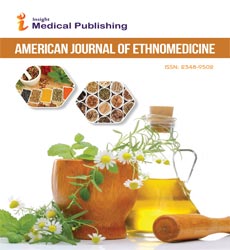ISSN : 2348-9502
American Journal of Ethnomedicine
The Matthew Effect in Science is an Eponym Error
Wilson IB Onuigbo*
Department of Pathology, Medical Foundation and Clinic, 8 Nsukka Lane, Enugu 40001, Nigeria
- *Corresponding Author:
- Onuigbo WIB
Department of Pathology
Medical Foundation and Clinic
8 Nsukka Lane, Enugu 40001, Nigeria
Tel: 2348037208680
E-mail: wilson.onuigbo@gmail.com
Received Date: May 27, 2017; Accepted Date: May 31, 2017; Published Date: June 10, 2017
Citation: Onuigbo WIB (2017) The Matthew Effect in Science is an Eponym Error. Am J Ethnomed. Vol. 4 No. 1:6
Abstract
This study presents the Biblical details which expose the inadequacy of the eponymous reward called the “Matthew Effect” in Science. Indeed, apart from Matthew, two other Apostles held precisely the same view. Consequently, since the word, “Synoptic,” embodies all the three Apostles, the adequate allocation should be “the “Synoptic Effect” in Science.
Keywords
Matthew effect, Mark, Luke, Synoptic gospels, “Synoptic Effect,” Science, Communication
Introduction
Eponym, according to the 2012 Edition of Merriam-Webster’s Collegiate Dictionary, came into use about the year 1846 as “one for whom or which something is or is believed to be named” [1]. The qualifications inherent in this definition point to the uncertainty which may manifest on using one name or the other name in the literature.
Literature search may be beamed on a famous example, namely, “The Matthew Effect in Science.” This was proposed by Merton [2], Giddings Professor of Sociology at Columbia University, New York. This was after he read a paper before the American Sociological Association in San Francisco in 1967. In particular, when he considered the apparent misallocation of rewards to scientists for their contributions to learning, he likened the phenomenon to the imbalance of credit apparent in the biblical book of St. Matthew which ran as follows according to Chapter 25, verse 29 [3]:
For unto every one that hath shall be given, and he shall have abundance: but from him that hath not shall be taken away even that which he hath.
The Other Biblical Messages
Was Matthew the only apostle to convey the above message? The answer is “No!” Actually, his name merely appeared first among the Gospels. If anything, Apostle Luke’s own approach excelled by being of double documentation thus [4]:
1. Chapter 8, verse 18: Take heed therefore how you hear: for whosoever hath, to him shall be given: and whosoever hath not, from him shall be taken even that which he seemed to have.
2. Chapter 19, verse 26: For I say unto you, That unto everyone which hath shall be given; and from him that hath not, even that he hath shall be taken away from him.
As for Apostle Mark, Chapter 4, verse 25 made a single succinct statement thus [5]:
For he that hath, to him shall be given: and he that hath not, from him shall be taken even that which he hath.
The Solution
Now, in proposing Matthew as an eponym, Merton [3] himself should have, as the saying goes, laid all the cards on the table. Unfortunately, he did not. In fact, his selective eponymous award to Matthew turns out to be a misallocation, seeing that both Mark and Luke deserve the same recognition.
Recognition could still be effected by putting all three Apostles on an even keel, so to say, in terms of the “Matthew-Mark-Luke Effect”! However, this would be cumbersome. Rather, what should be sought is one word.
Word of choice is fortuitously available. Thus, it is acknowledged that all the three Apostles wrote so much alike as to be classed together as Synoptic. Indeed, to refer again to the Collegiate Dictionary, it defines “Synoptic” specifically as “relating to the first three Gospels of The Testament.” Therefore, it is to be granted that the Matthew eponym has hitherto existed as a misallocation in the scientific literature. In effect, the need is for a change that is both etymologically and theologically equitable. Accordingly, the perfectly allocated reward should be “The Synoptic Effect in Science.”
Science, in conclusion, involves much communication. In particular, eponyms play an important role in it [6]. Consequently, the present attempt to advance the use of a fitting eponym agrees with Jana, Barik and Arora [7], who stressed with an eye on “linguistic simplicity” that, in choosing an eponym, there is “a need for global uniformity in scientific publications.” In other words, eponyms deserve to be given special attention by taking care that the principles of apt allocation should manifest expeditiously. In sum, eponyms should not only be really recondite but also applied appropriately.
References
- Merriam-Webster’s (2012) Collegiate Dictionary MA 421.
- Merton RK (1968) The Matthew effect in science 159: 56-63.
- Holy Bible. Matthew 25: 29.
- Holy Bible. Luke 8: 18; 19: 26.
- Holy Bible. Mark 4:25.
- Cooley DA (2004) In pursuit of an eponym Texas Heart Institute Journal 31: 117.
- Jana N, Barik S, Arora N (2009) Current use of medical eponym a need for global uniformity in scientific publication BMC Medical Research Methodology 9: 18-23.
Open Access Journals
- Aquaculture & Veterinary Science
- Chemistry & Chemical Sciences
- Clinical Sciences
- Engineering
- General Science
- Genetics & Molecular Biology
- Health Care & Nursing
- Immunology & Microbiology
- Materials Science
- Mathematics & Physics
- Medical Sciences
- Neurology & Psychiatry
- Oncology & Cancer Science
- Pharmaceutical Sciences
